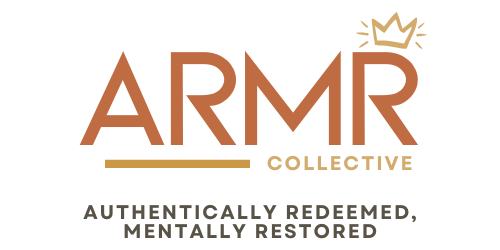They strike when you least expect them. You’re driving down a familiar road when your mind whispers, “What if you crashed into the pond?” You’re holding a fragile heirloom and suddenly think, “What if I just threw this?” You’re waving goodbye to your spouse and think, “What if that’s the last time I see them?” These unwanted mental visitors – intrusive thoughts – can be jarring, disturbing, and confusing. They can make you question your sanity, your character, or even your faith. But here’s what I need you to know.
You’re not alone, you’re not broken, and these thoughts are not a reflection of who you truly are.
The Different Faces of Intrusive Thoughts
Intrusive thoughts can show up in our lives in different ways. Sometimes they’re bizarre and random, completely disconnected from anything we’d actually want to do:
- “What if I suddenly cut my finger while chopping these vegetables?”
- “What if I swerved into oncoming traffic right now?”
- “What if I just tossed this head of lettuce across the grocery store?”
Other times, they tap into our deepest fears, especially about the safety of our loved ones:
- “Is my baby breathing?” (even when they’re sleeping peacefully)
- “My husband is 10 minutes late. Did he get in a car crash?”
- “What if I accidentally left the stove on and my house burns down?”
I’ve experienced both kinds. I still remember driving across a bridge when my mind suddenly flashed an image of driving off the edge. I gripped the steering wheel tighter, heart racing, thinking, “What is WRONG with me? Why would I even think that?”
Years later, after losing several family members in a short time span, I started having more of the fear-based intrusive thoughts about my remaining loved ones. These thoughts would ambush me out of nowhere – while cooking dinner, during a happy family gathering, or in the quiet moments before sleep.
Maybe your experience is different. Maybe you’re a new parent who’s been shocked by sudden thoughts of dropping your baby or leaving them somewhere. Maybe you’ve had disturbing violent or sexual thoughts that feel completely alien to who you are. Maybe you’ve had blasphemous thoughts during prayer that left you feeling ashamed and distant from God.
Whatever form they take, here’s what I wish someone had told me years ago: These thoughts are incredibly common. Most people experience them.
And having them doesn’t mean anything about your character or your faith.
Two Challenging Patterns
Depending on the type of intrusive thought, we can get stuck in different patterns:
The Random, Bizarre Thought Pattern
With those sudden, bizarre thoughts like “What if I cut my finger?” or “What if I jumped off this balcony?”, we often get caught in a shame spiral:
- You have the intrusive thought
- You’re shocked by it: “Why would I even think that?!”
- You worry about what it means about you: “Am I a bad person for thinking this?”
- You try to suppress the thought, which paradoxically makes it stronger
- The thought comes back, and the cycle continues
The Fear-Based Checking Pattern
With fear-based thoughts, especially those around the safety of loved ones, we get caught in a different cycle:
- You have an intrusive thought: “Is my baby breathing?”
- You check on your baby, who is breathing peacefully.
- You feel relief… for about 30 seconds.
- Then the thought returns: “But what if they stopped breathing just now?”
- You check again. They’re still fine.
- But a few minutes later: “I should check one more time, just to be sure.”
- And the cycle continues…
Both patterns can be exhausting in their own ways. Both can steal your peace and joy. And both are exceedingly common, even though we rarely talk about them.
It’s Not a Sin to Have Intrusive Thoughts
Having intrusive thoughts is not a sin.
Jesus Himself was “tempted in every way, just as we are—yet He did not sin” (Hebrews 4:15). Temptation involves thoughts, but thoughts themselves aren’t sinful unless we choose to dwell on them or act on them.
Intrusive thoughts aren’t even thoughts you’re choosing to think! They’re more like mental hiccups – involuntary and unwelcome. They’re like someone knocking on your door uninvited – you didn’t ask them to come, and you’re not responsible for their appearance.
Why Our Brains Do This
So why does our mind serve up these unwanted thoughts? There are several possibilities:
When we’re stressed, anxious, or overwhelmed, our brains can go into overdrive trying to protect us. Sometimes this manifests as intrusive thoughts about worst-case scenarios – almost like our brain’s weird way of saying, “Be careful!”
Trauma and grief can definitely increase intrusive thoughts, especially related to our fears of experiencing similar pain again. After losing my loved ones so close together, my mind became hypervigilant about potential threats to my remaining loved ones.
Certain conditions like anxiety, OCD, and PTSD can also increase the frequency of intrusive thoughts, but you don’t need a diagnosis to experience them.
At the most fundamental level, intrusive thoughts are a symptom of living in a fallen world. When sin entered creation, it affected everything—including how our minds work. Our thoughts, like everything else in this world, are subject to the effects of the Fall. That doesn’t mean the thoughts themselves are sinful; it means our minds, like our bodies, don’t always function as perfectly as God originally designed them to.
Breaking Free From Their Power
What I’ve learned through my own journey is that intrusive thoughts gain power through our reaction to them. The more we fight them, analyze them, or fear them, the stronger they seem to become.
Here are some approaches that have helped me:
1. Call them what they are
When an intrusive thought pops up, try simply labeling it: “That’s just an intrusive thought.” This creates distance between you and the thought. You’re not identifying with it; you’re just observing it passing through.
2. Share them with someone safe
The shame around intrusive thoughts thrives in isolation. When I finally opened up to a trusted friend about some of my intrusive thoughts, her response was, “Oh, I’ve had that thought before too!” Just knowing I wasn’t alone instantly reduced their power.
3. Replace shame with truth
Instead of “I’m terrible for thinking this,” try “This thought doesn’t define me. I am who God says I am.” Our identity isn’t determined by random thoughts that pop into our heads but by the truth of who God created us to be.
4. Break the checking cycle
This was my biggest challenge with intrusive thoughts. I’d have a thought like “What if my baby isn’t breathing?” and check on my baby. They’d be fine, but ten minutes later, I’d think, “But what if they stopped breathing since I last checked?” So I’d check again… and again… and again.
The repeated checking actually reinforces the cycle instead of breaking it. Each time we check, we’re essentially telling our brain, “Yes, this is something worth worrying about!” When we check and everything’s fine, we get momentary relief, but that relief doesn’t last because we’ve reinforced the importance of the worry.
Breaking this cycle might mean deliberately postponing checking (“I’ll check on the baby in 15 minutes, not right now”), limiting yourself to one check only, or distracting yourself with something else that requires your full attention. These strategies are hard at first, but over time, they help your brain learn that these thoughts don’t require immediate action.
5. Fill your mind with good things
Scripture tells us to “set your mind on things above” (Colossians 3:2). I’ve found that actively filling my mind with truth, beauty, and goodness leaves less room for intrusive thoughts to take up residence. Worship music, Scripture, healthy relationships, and creative activities can all help crowd out unwelcome thoughts.
When You Might Need Extra Support
While intrusive thoughts are normal, they can sometimes become overwhelming. If they’re causing significant distress, interfering with your daily life, or leading to compulsive behaviors to try to neutralize them, please consider talking to a professional.
A counselor or therapist who understands both mental health and faith can be an incredible resource.
There’s absolutely no shame in seeking help – it’s an act of courage and self-care.
You Are Not Your Thoughts
The most freeing truth I’ve learned is this: You are not your thoughts. Your thoughts are just mental events that come and go – they don’t define you, reveal your secret desires, or change your relationship with God.
Like clouds passing across the sky, these thoughts can be observed without becoming attached to them. They may be unpleasant when they appear, but they will also pass.
Intrusive thoughts are a symptom of living in a fallen world, not a reflection of who you truly are. They’re like static on a radio – annoying and distracting, but not the actual music.
God knows the difference between the random thoughts that pass through your mind and the actual desires of your heart.
Even in moments when your mind feels like a runaway train, God’s love for you remains constant and complete.
If you’re struggling with intrusive thoughts right now, be gentle with yourself. Remember that you’re not alone in this experience. And know that having these thoughts says nothing about your character, your faith, or your heart.
The next time an intrusive thought appears, try responding with the same compassion Jesus extends to you. Take a deep breath, remember who you really are, and gently turn your attention elsewhere.
These thoughts may visit from time to time, but they don’t get to define you or direct your life.
What are some of the most bizarre and/or silliest intrusive thoughts you’ve had? (I once wanted to toss a head of lettuce in the air and smack it across the room with the cutting board like serving a tennis ball!) What has helped you manage them? I’d love to hear your experiences in the comments below.




4 thoughts on “The Battle with Intrusive Thoughts”